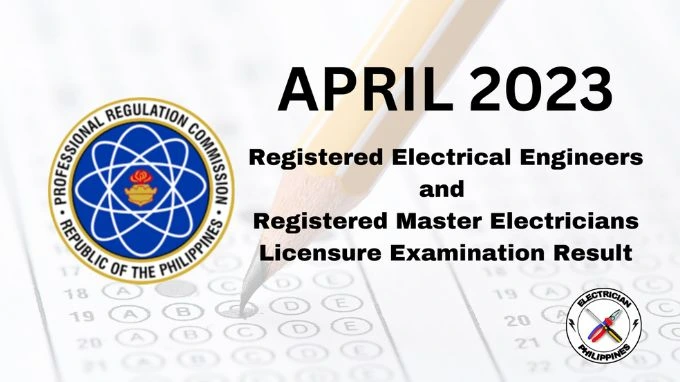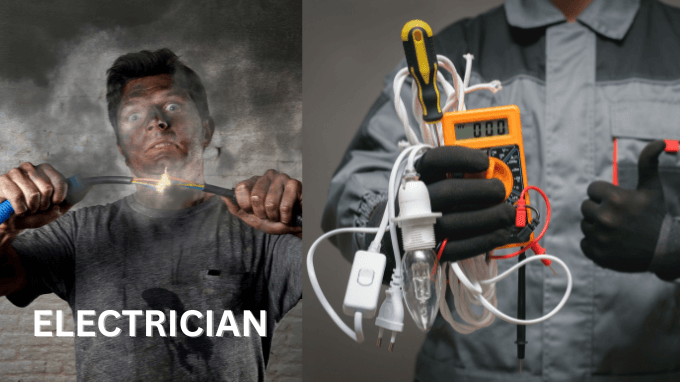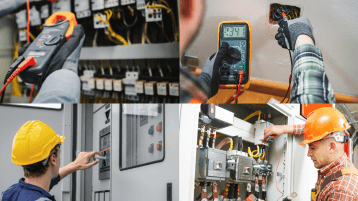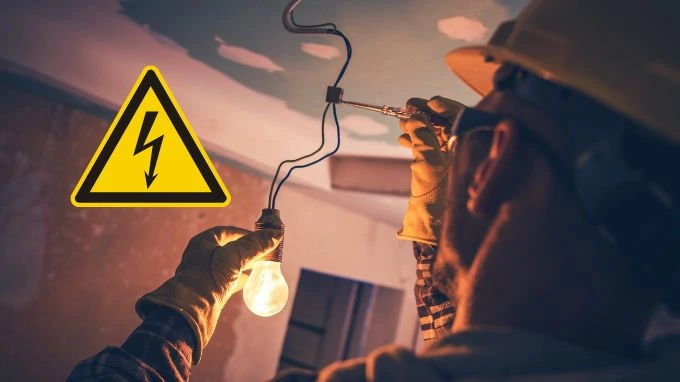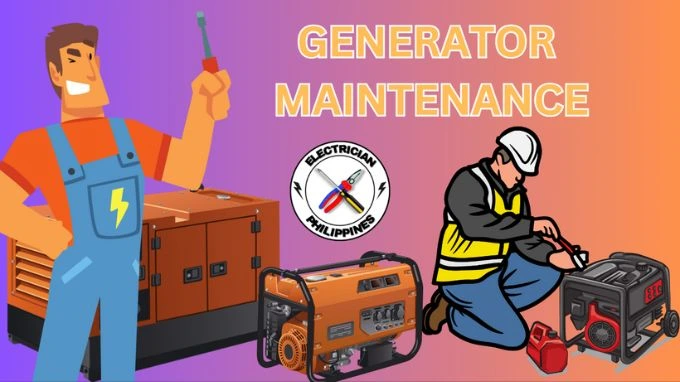
Generator maintenance is a crucial aspect of an electrician’s job. As an electrician, you rely on generators to provide temporary power solutions for your clients, whether it’s during a power outage, construction projects, or outdoor events. To ensure the reliable and efficient operation of generators, regular maintenance is essential. This article will guide you through the important tips and best practices for maintaining generators effectively.
TABLE OF CONTENTS
1. Introduction
- Importance of generator maintenance for electricians.
- Benefits of regular maintenance.
2. Understanding Generator Maintenance
- Components of a generator.
- Basic maintenance tasks.
- Importance of following manufacturer guidelines.
3. Preparing for Generator Maintenance
- Gathering necessary tools and equipment.
- Ensuring safety measures.
- Disconnecting power sources.
4. Regular Inspection and Cleaning
- Checking fuel levels and quality.
- Inspecting coolant and oil levels.
- Cleaning air filters and ventilation.
5. Battery Maintenance
- Checking battery connections.
- Testing battery performance.
- Replacing or recharging batteries as needed.
6. Testing and Operating the Generator
- Regular load testing.
- Verifying proper voltage and frequency.
- Addressing any operational issues.
7. Addressing Common Generator Problems
- Troubleshooting starting issues.
- Dealing with fuel-related problems.
- Handling exhaust and noise concerns.
8. Safety Precautions and Practices
- Importance of working in a well-ventilated area.
- Using personal protective equipment.
- Proper handling of fuel and fluids.
9. Hiring Professional Services
- Knowing when to call a professional electrician.
- Selecting a reputable generator maintenance service.
- Benefits of professional expertise.
10. Extending the Lifespan of Your Generator
- Regular maintenance schedules.
- Storing the generator properly.
- Updating firmware and software as needed.
11. Conclusion
Electrician Tips: Generator Maintenance
1. Introduction.
As an electrician, you understand the importance of reliable power supply for your clients. Generators play a vital role in fulfilling this need, making it necessary for you to have a good understanding of generator maintenance. By properly maintaining generators, you can ensure their longevity, prevent breakdowns, and deliver uninterrupted power when your clients need it the most.
2. Understanding Generator Maintenance.
- To perform effective generator maintenance, it’s crucial to familiarize yourself with the components and basic maintenance tasks involved. Generators consist of various components such as engines, fuel systems, cooling systems, batteries, and electrical connections. Each component requires specific attention to keep the generator running smoothly.
- Basic maintenance tasks include regular inspections, cleaning, testing, and addressing common problems. By following the manufacturer’s guidelines and recommendations, you can ensure that your generator functions optimally and remains in good condition.
3. Preparing for Generator Maintenance.
- Before starting any maintenance tasks, gather the necessary tools and equipment. This may include safety gear, such as gloves and goggles, as well as specific tools for checking fluid levels, filters, and electrical connections. Additionally, ensure that you have a clear workspace and adequate lighting to perform maintenance tasks safely.
- Always prioritize safety when working with generators. Before starting any maintenance, disconnect the power sources and let the generator cool down. This will reduce the risk of electrical shock and potential burns.
4. Regular Inspection and Cleaning.
- Regular inspection and cleaning are vital for maintaining a generator’s performance. Start by checking the fuel levels and quality. Ensure that the fuel is clean and free from contaminants. Additionally, inspect the coolant and oil levels, ensuring they are at the recommended levels.
- Air filters and ventilation systems also require regular cleaning. Dirty air filters can restrict airflow and lead to overheating, affecting the generator’s efficiency. Clean or replace the air filters regularly to prevent such issues. Clear any debris or obstructions from the ventilation system to ensure proper airflow and cooling.
5. Battery Maintenance.
- Generators often rely on batteries to start the engine and provide backup power. It’s crucial to pay attention to battery maintenance. Check the battery connections regularly to ensure they are secure and free from corrosion. Corroded connections can impede the flow of electricity and affect the generator’s performance.
- Test the battery’s performance periodically using a voltmeter or multimeter. If the battery voltage is low, consider recharging or replacing it to avoid unexpected power failures. A well-maintained battery ensures reliable generator operation and quick start-ups.
6. Testing and Operating the Generator.
- Regularly testing and operating the generator is essential to identify any potential issues and ensure its functionality. Conduct regular load testing to assess the generator’s ability to handle the expected electrical load. This test simulates real-world conditions and helps identify any performance issues.
- Verify the generator’s voltage and frequency output to ensure they align with the required specifications. In case of any deviations, troubleshoot and address the problem promptly. Pay attention to unusual noises, vibrations, or irregularities during the operation, as they can indicate underlying issues that need to be resolved.
7. Addressing Common Generator Problems.
- While maintaining generators, it’s important to address common problems that electricians often encounter. Starting issues are a common concern, and troubleshooting them involves checking the battery, fuel supply, and starter motor. Ensure the battery is charged and the fuel supply is clean and adequate. If the starter motor is faulty, it may need repair or replacement.
- Fuel-related problems can also affect generator performance. Contaminated fuel can clog the fuel system and cause engine issues. Use clean, high-quality fuel, and consider using fuel stabilizers to prevent fuel degradation. Regularly inspect and clean the fuel filters to maintain proper fuel flow.
- Exhaust and noise concerns should not be overlooked. Ensure the generator is positioned in a well-ventilated area to prevent the buildup of toxic fumes. Install appropriate mufflers and soundproofing measures to reduce noise levels, especially in residential or noise-sensitive areas.
8. Safety Precautions and Practices.
- When performing generator maintenance, prioritize safety to protect yourself and others. Work in a well-ventilated area to minimize the risk of inhaling toxic fumes. Wear personal protective equipment, including gloves, goggles, and ear protection, to safeguard against potential hazards.
- Handle fuel and fluids with caution. Follow proper storage and disposal procedures for used oil, coolant, and other fluids. Spills should be cleaned up immediately to prevent slips and environmental contamination. Remember, safety is paramount in maintaining generators effectively.
9. Hiring Professional Services.
- While many generator maintenance tasks can be performed by electricians, there may be instances when professional assistance is required. If you encounter complex issues or lack the necessary expertise, don’t hesitate to seek the services of a reputable generator maintenance company. Professional technicians possess the knowledge and specialized tools to diagnose and repair complex problems, ensuring the optimal performance of your generator.
- Choosing a reliable generator maintenance service is important. Look for providers with a proven track record, positive customer reviews, and certifications. Engaging professionals can save you time, prevent further damage, and provide peace of mind knowing that your generator is in capable hands.
10. Extending the Lifespan of Your Generator.
- By following regular maintenance schedules and adopting good practices, you can significantly extend the lifespan of your generator. Develop a maintenance routine that includes periodic inspections, cleaning, and testing. Create a schedule for changing fluids, filters, and batteries based on the manufacturer’s recommendations.
- When not in use, store the generator properly in a clean and dry location. Protect it from extreme temperatures, moisture, and potential damage during storage. Keep the generator covered with a weatherproof tarp or in a dedicated storage unit to prevent dust accumulation and potential damage from environmental elements.
- Stay updated with firmware and software upgrades provided by the manufacturer. These updates often include performance enhancements, bug fixes, and improved safety features. Regularly check for updates and follow the manufacturer’s instructions to keep your generator up to date.
11. Conclusion.
Proper generator maintenance is vital for electricians to ensure reliable and uninterrupted power supply to their clients. By following the tips and best practices outlined in this article, you can maintain your generators in optimal condition and prevent unexpected breakdowns. Regular inspection, cleaning, and testing, along with addressing common issues, will help extend the lifespan of your generator and enhance its performance.
Remember to prioritize safety when performing maintenance tasks. Use personal protective equipment, work in well-ventilated areas, and handle fuel and fluids with caution. When in doubt or faced with complex problems, don’t hesitate to seek professional assistance.
By incorporating these maintenance practices into your routine, you can provide excellent service to your clients and ensure that their power needs are met consistently and efficiently.
FAQs (Frequently Asked Questions)
1. How often should I perform generator maintenance?
- Answer: Regular maintenance should be conducted at least once every six months. However, the frequency may vary depending on the generator model, usage, and manufacturer’s recommendations. Consult the owner’s manual or a professional for specific guidelines.
2. Can I use any fuel for my generator?
- Answer: It’s essential to use the fuel recommended by the manufacturer. Most generators run on gasoline, diesel, or propane. Using the wrong type of fuel can damage the engine and affect the generator’s performance.
3. Can I perform generator maintenance myself, or should I hire a professional?
- Answer: Many maintenance tasks can be performed by electricians. However, if you lack experience or encounter complex issues, it’s advisable to seek professional assistance. They have the expertise and specialized tools to diagnose and resolve problems effectively.
4. How long does a generator typically last?
- Answer: The lifespan of a generator can vary depending on various factors, including usage, maintenance, and quality. On average, a well-maintained generator can last anywhere from 10 to 30 years.
5. Is it necessary to load test the generator?
- Answer: Load testing is crucial to ensure the generator can handle the expected electrical load. It helps identify any performance issues and ensures the generator operates optimally during actual usage.







